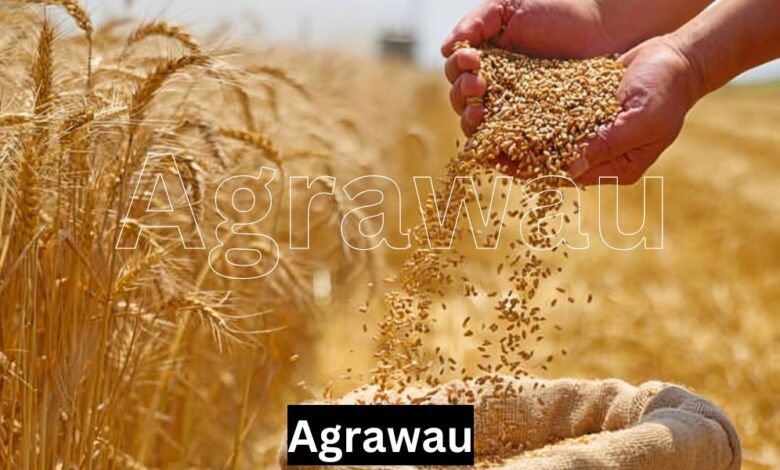Understanding Agrawau Exploring Its History, Significance, and Meaning

Although the term “Agrawau“ may not be familiar to many, it holds deep cultural, historical, and social significance for various communities. This article delves into the origins, meaning, and contemporary relevance of it From its historical roots to its role in modern society, this comprehensive guide will explore this term’s nuances and its legacy.
The Origins of Agrawau: A Historical Perspective
To understand it, we must first delve into its roots. The origins of the word “Agrawau” are steeped in history and likely connected to ancient Indian traditions. Many scholars and historians believe that it has ties to the it community, one of India’s prominent trading and entrepreneurial communities.
The it community traces its lineage to the legendary King Agrasen, a ruler known for his justice, equality, and economic prosperity principles. This in this context, could refer to a specific cultural practice, tradition, or subsect related to the Agarwal heritage. However, the term may also have evolved to embody different meanings depending on the region and its usage.
In Sanskrit, the word “Agra” means “first” or “primary,” while “wau” could be interpreted as a suffix denoting a collective group. Therefore, it could symbolically represent a “primary group” or a “pioneering community.”
Agrawau and Its Connection to the Agarwal Community
Historically associated with trade and commerce, the Agarwal community is known for its significant contributions to India’s economy and society. If it is tied to this community, it highlights the enduring legacy of entrepreneurship, ethical business practices, and social responsibility.
King Agrasen, the mythical progenitor of the Agarwals, is believed to have established a society based on equality and welfare. This ideology resonates with the ethos of it which could signify a group or tradition dedicated to similar values.
Moreover,It may also reflect a sense of unity within the community. Throughout history, the Agarwals have been known for their strong community networks, mutual support, and philanthropy. The term could represent the collective spirit of these values.
The Role of Agrawau in Cultural and Social Practices
It may not just be a historical term; it could also have a role in cultural and social practices. For instance, many Indian communities have unique traditions, festivals, and ceremonies that bind them together. this could be one such practice, symbolizing a shared cultural identity.
Communities often emphasize their ancestral heritage in weddings, festivals, and religious ceremonies.This could refer to such ancestral ties or rituals passed down through generations.
The term may also reflect a particular style of governance or societal structure. King Agrasen’s governance model—where every family contributed resources to help new community members—might still influence the way it is understood in modern contexts.
Agrawau in Literature and Folklore
The word it may also appear in literature, folklore, or oral traditions. Stories and legends surrounding King Agrasen and the Agarwal community often inspire storytelling and cultural preservation.
In such narratives, This could signify a moral or ethical principle, much like the tenets of fairness and justice that King Agrasen upheld. Whether in poetry, prose, or oral recitation, This might represent an ideal society where people work together for the common good.
If there are references to this in regional languages, exploring how the term is adapted and understood in various dialects and storytelling traditions would be fascinating.
The Modern Relevance of Agrawau
In the contemporary world, itcould serve as a reminder of the values that ancient communities like the Agarwals embodied. As we navigate challenges like inequality, economic instability, and cultural erosion, revisiting concepts like it can inspire collective action and ethical governance.
For instance, the entrepreneurial spirit associated with the Agarwal community remains relevant today. Startups, family-run businesses, and community-driven initiatives could draw lessons from the principles that it represents.
Moreover, in an era of globalization, where communities often struggle to maintain their identity, it could symbolize the importance of preserving heritage while embracing progress.
Agrawau and Its Role in Identity Formation
Identity is a crucial aspect of human existence, and it might play a significant role in shaping the identity of those who associate with it. For members of the Agarwal community, Agrawau could represent their historical roots and shared values, fostering a sense of belonging.
Cultural identity often evolves, but certain traditions and practices remain constant. Agrawau could be one such constant, a thread that ties generations together. The term might represent a deep connection to ancestry and community, whether through festivals, rituals, or everyday practices.
Challenges in Preserving Agrawau
Like many cultural terms and practices, Agrawau might face challenges in the modern era. Urbanization, migration, and globalization often dilute traditional values and practices. For Agrawau to remain relevant, it must adapt to changing times while preserving its core principles.
Efforts to document and promote the understanding of Agrawau—through literature, education, and digital media—could play a vital role in its preservation. By engaging younger generations and fostering pride in their heritage, communities can ensure that Agrawau continues to thrive.
Agrawau: A Symbol of Resilience and Unity
Ultimately, Agrawau could be more than just a word; it might represent a philosophy of life. Whether for community, tradition, or shared values, Agrawau embodies resilience and unity.
Throughout history, communities like the Agarwals have shown remarkable adaptability and strength in adversity. If Agrawau reflects this spirit, it is a powerful reminder of the importance of working together for a better future.
Conclusion: Embracing the Legacy of Agrawau
The term Agrawau carries layers of meaning, from its historical roots in the Agarwal community to its potential as a symbol of unity, resilience, and cultural identity. By understanding and embracing Agrawau, we gain valuable insights into the principles of equality, entrepreneurship, and social harmony that have endured through the ages.
In a rapidly changing world, concepts like Agrawau remind us of the importance of staying connected to our roots while moving forward. Whether through community initiatives, cultural preservation, or personal reflection, Agrawau’s legacy continues to inspire and guide us toward a more inclusive and prosperous future.

